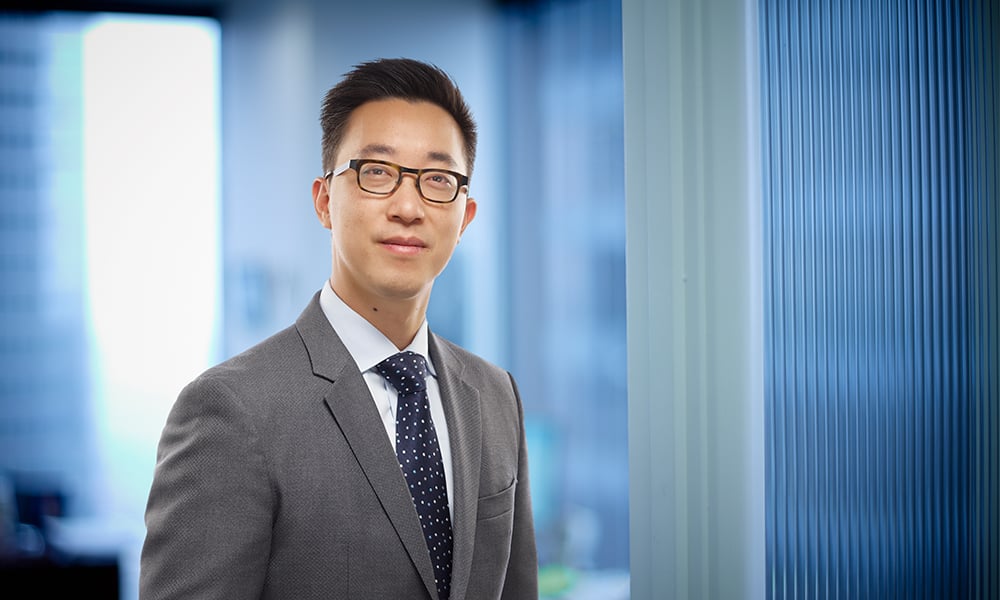
Lawyers encouraged to speak out about racist incidents

Lawyers have an additional responsibility to call attention to anti-Asian sentiments surrounding the COVID-19 pandemic, said members of the Federation of Asian Canadian Lawyers said on an April 25 podcast.
“This is the time for lawyers to speak up,” said Leonard Kim, a Crown based in Sudbury, Ont. “This is a time for us to stop others and speak out when racist comments are being made, specifically to Asian Canadians in the context of COVID-19.”
Stockwoods LLP lawyer Gerald Chan said he received negative emails that have linked the destructive force of COVID-19 in Canada with early strains of coronavirus found in Wuhan, China — and the Chinese government’s response.
A term like “Chinese virus” can be used too easily to erase the distinction between legitimate criticism of the Chinese Communist Party and anti-Asian racism, said Chan. While it is not racist for someone to criticize the Chinese government’s response to the pandemic, the danger of a term like “Chinese virus” is that it can conflate the criticism of the Chinese government response with broader anti-Asian sentiment, he said.
Kim said that while hate crimes are always on his radar as a prosecutor, recent racist incidents have made Asian Canadian lawyers more vulnerable — although he has personally had a positive experience in the community over the past 16 years.
“I haven’t experienced any overt racism — there was one comment made to me with respect to ‘Wuhan’ as I walked down the street the other day and put a letter in the mailbox — but I didn’t pay much attention to it. That’s just par for the course living in a community where there’s not a lot of Asians,” said Kim, who noted he was speaking personally and not on behalf of any government entity. Kim said his wife, an immigrant from South Korea, is “very much in tune with what we’re seeing across the world with respect to anti-Asian sentiment.”
“You do get ‘those’ looks, more so with the onset of COVID-19, and you take precautions . . . . we actually plan our day around my work schedule to make sure that she doesn’t go grocery shopping alone.”
Chan pointed out factors contributing to unconscious bias —language used to describe the virus, depersonalization of people of Asian descent wearing masks, and passive racism such as avoiding Chinese restaurants or people in the grocery story.
According to Kim, these factors can manifest themselves as hate crimes. He noted his work for the Crown, which includes anti-hate crime training, has been a positive force in his life, providing a foundation of support and confidence.
“In the legal profession, I think that we have a heightened responsibility, being a part of a democracy where we rely so much on the rule of law. We rely so much on good citizenship, and being a part of a society that values diversity, that values and respects others for who they are, and really promotes dignity. That is something that goes to the heart of who we are as Canadians and who we are as lawyers,” said Kim.
Chan noted that amid news of a more overt racist incident in Toronto, he was reminded of the long legal history of exclusion, such as the Chinese Immigration Act or Chinese Exclusion Act.
“It became impossible to ignore,” said Chan.
Chan said the first step to speaking out, for both racialized and non-racialized lawyers, is being aware of how anti-Asian sentiment can “infect” our thinking.
“The important part of it, in terms of being part of the solution, is not just to focus and direct our efforts toward the low-hanging fruit. Everybody should easily condemn any sort of overt hostile act and violent act of racism,” said Chan. “But it’s also [about] talking openly and candidly the more subtle things.”
Kim noted that speaking out can be a difficult responsibility to bear: For instance, if opposing counsel uses “Wuhan virus” in an email to discuss a scheduling matter.
“Here I am, trying to schedule something with the trial coordinator. Is this the right time to call that lawyer out?” said Kim. “Amongst the things you want to work on that day, this isn’t something you want to add to your day. That’s a practical reality, personally, for me as a lawyer.”
Chan said organizations such as FACL play a role in the legal community because it is easier for lawyers to speak out, collectively, about what they are experiencing — and be heard. That said, part of overcoming the “model minority” myth around Asian Canadians is spotlighting how vastly different their experiences may be, said Chan.
“The danger is that whenever you have something negative happen, that causes some to view a community with suspicion . . . . It causes those in the Asian Canadian community and Chinese Canadian community to feel like the ‘Chinese’ part is bolded and underlined and italicized, and the ‘Canadian’ part is being scrubbed out,” said Chan.
“That’s what leads to a sense that we are somehow on perpetual probation, and that our belonging in Canadian society is conditional on everything else going fine. And that’s insidious.”